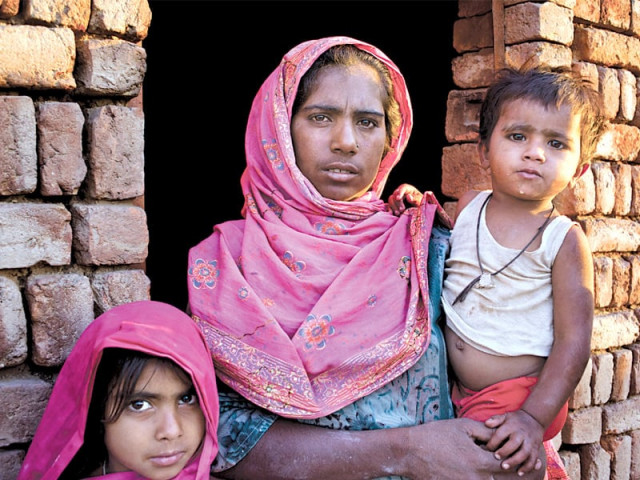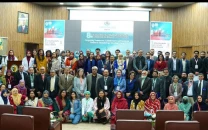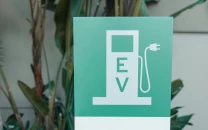Brick kilns
Where troubles don’t melt down chimney tops.

Marked to celebrate the social and economic contributions of the labour class, May 1 means little to brick kiln workers of Shir Dhamial, in a country fertile with such paradoxes.
Covered in soot, 32-year-old Muhammad Asghar looks much older than his years. While talking to The Express Tribune, he said that he was fated to be a labourer, though he mentioned faded dreams of wanting to join the armed forces like his uncle.
As life progressed Asghar, who attended middle school in Bahawalpur, met with the same fate as his father who was also a brick kiln worker. Unable to continue his education because money was scarce and his father needed a hand in paying off debt, he too took on the tough trade.
The peshgi (advance) system, a form of bonded labour that keeps workers indebted to their bosses, has thrown families such as that of Asghar’s into this vicious cycle. Both Asghar and his wife Shaheen are succeeding a past generation of brick kiln workers who were forced into the trade because of poverty and inherent illiteracy.
“All we have is this roof,” said Shaheen, her fatigued face bathed in golden light from the setting sun, smoke curling upwards from the mouth of the brick factory behind. While resting her one year-old daughter Arifa on a hip, she got ready to prepare their evening meal. “Nobody chooses this profession,” she complained, though quietly.
Asghar and Shaheen along with their two daughters, share their humble brick home with another young couple and their daughter. The structure is bare except for some kitchen utensils, a clay oven and a charpoy. The girls play among the soot and bricks until the sun begins to set signaling the end of the day for the labourers hard at work nearby.
“We wish a better life for her,” said Asghar, in a shaky voice while talking about his seven-year-old daughter’s future. “But how can we send her to school? We have no means.”
The couple alternate work between Islamabad and Bahawalpur, working 16-hour shifts in areas where education is neither free nor accessible. Cities lure a large number of labourers each year with the typically empty promise of better living standards. They earn an average of 400 rupees per day with which they hope to pay off over a lac rupees in peshgi. “It could take us four years.” Shaheen’s projections are optimistic, though in reality it is hard for labourers to tally up how much of their debt has been paid, giving their bosses an unfair advantage, which often empowers them to levy further fines to ensure a lifetime’s worth of bonded labor.
“We are not fated for government jobs,” Asghar said about his past attempts to procure better employment opportunities. His experiences with job applications have been ripe with disappointment. When Asghar applied for a position in the Forestry Department in 1997, he was asked to bring Rs10,000 and livestock as bribe. “I wouldn’t be a brick labourer if I had the means to provide all that,” he said.
The peshgi system, though banned by the Supreme Court over a decade back, continues to exist, taking into its folds those who have few alternates for survival.
The Bonded Labour Liberation Front Pakistan has championed the present government’s inaptitude in enforcing the minimum wage of Rs517 per 1,000 bricks as well as in providing basic rights such as social security to the workers through a new campaign starting May 1 this year. To ensuring the issuance of identification and such documents is a positive step towards curbing further growth in the bonded labour industry.
Asghar and his wife are among 65 brick kiln labourers working at the brick factory in Shir Dhamial, one of the last few to remain after environmental concerns pushed neighbouring factories to the outskirts of the city. They rise each morning before the cleric’s call to prayers and fall asleep after a day of hard labour driven by the incentive of freedom and of a better life framed ironically, within the landscape of rising smoke and drying bricks.
Published in The Express Tribune, May 1st, 2012.



















COMMENTS
Comments are moderated and generally will be posted if they are on-topic and not abusive.
For more information, please see our Comments FAQ